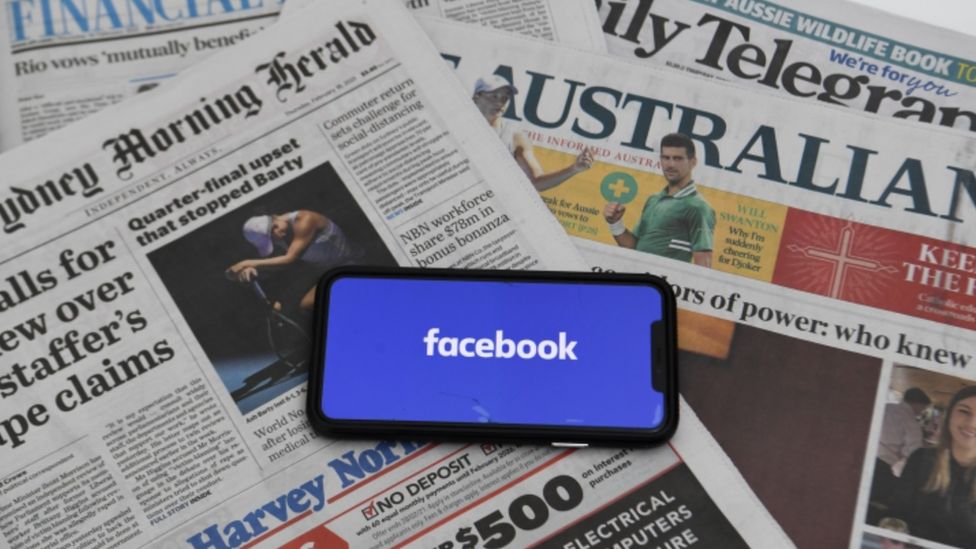
Facebook has announced it will restore news content to its users in Australia.
The tech giant has blocked news to Australians on its platform since last Thursday amid a dispute over a proposed law which would force it and Google to pay news publishers for content.
Australian Treasurer Josh Frydenberg said Facebook chief Mark Zuckerberg had told him the ban would end “in the coming days”, after the pair had talks.
Mr Frydenberg said amendments would be made to the law.
“Facebook has re-friended Australia,” he told reporters in Canberra on Tuesday.
The government has been debating the law – seen as a possible test case for regulation globally – in the Senate, after it was passed in the lower house last week.
Why did Facebook block news content?
Last Thursday, Australians woke up to find they could not access or share any news stories on their accounts.
Facebook argued it had been forced to block Australian news in response to the proposed legislation.
The government’s news code aims to set up a “fairer” negotiation process between the tech giants and news companies over the value of news content.
- What happened after Facebook blocked news in Australia?
- Facebook blocks news content in Australia
But it has been strongly opposed by Facebook and Google – both argue the code misunderstands how the internet works. Facebook has also said it gets little commercial gain from news content.
But the Australian government says the code is needed to “level the playing field” for news publishers, which have seen profits slump in the internet age.
Why has it changed its mind?
Facebook said on Tuesday that it had been reassured by recent discussions with the government.
“Going forward, the government has clarified we will retain the ability to decide if news appears on Facebook so that we won’t automatically be subject to forced negotiation,” said Campbell Brown, vice president of global news partnerships at Facebook.
“We have come to an agreement that will allow us to support the publishers we choose to, including small and local publishers.”
Facebook already has its own “showcase” product through which it pays media organisations a fee to display their stories on its platform.
Google had also threatened to withdraw its primary search engine from Australia, but the company has recently agreed deals with local media companies including Nine Entertainment, Seven West Media and Rupert Murdoch’s News Corporation.
What does the government say now?
The government said it had encouraged Facebook to negotiate in good faith with local media companies, citing Google’s recent deals as an example.
Mr Frydenberg again criticised Facebook’s news ban last week, saying it was a “regrettable” action that came with no warning.
The blanket ban had also initially included more than 100 non-news sites including government health and emergency pages. Facebook later asserted that these had been “inadvertently impacted”.
The tech giant drew a wide backlash from Australian users.













+ There are no comments
Add yours